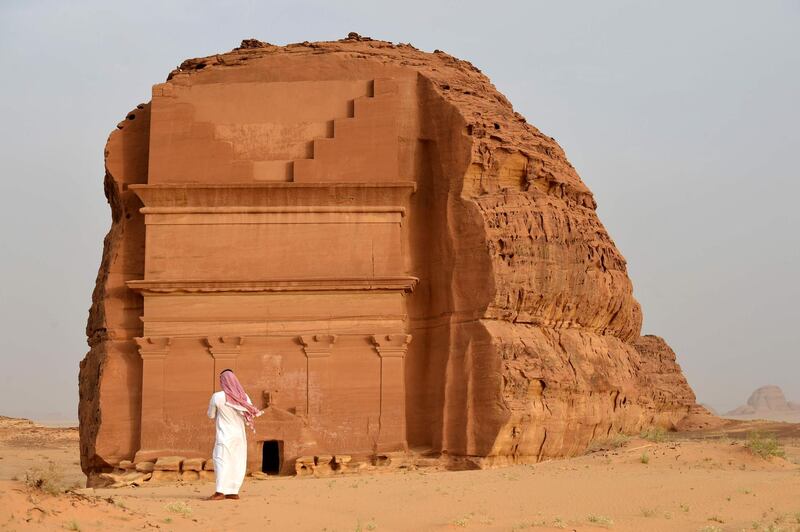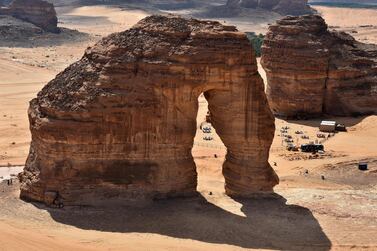Just one week after Saudi Arabia won a seat on Unesco's executive board, the kingdom has been given another honour by the cultural and educational agency.
Saudi Arabia was elected to Unesco's world heritage committee for the first time yesterday, during the 22nd General Assembly of the States Parties to the World Heritage Convention in Paris.
The accolade means that the kingdom will now sit on the official governing body of the Unesco World Heritage List, which has final say on what sites and properties can be added to the prestigious list.
Landmarks on the World Heritage List are afforded legal protection by international treaties, with sites currently on the list including the six Al Ain Oases in the UAE and Jordan's Petra.
On Wednesday, the General Assembly elected eight new members to the committee alongside Saudi Arabia, namely Egypt, Ethiopia, Mali, Nigeria, Oman, Thailand, the Russian Federation and South Africa.
The countries join Australia, Bahrain, Bosnia and Herzegovina, Brazil, China, Guatemala, Hungary, Kyrgyzstan, Norway, Saint Kitts and Nevis, Spain and Uganda to form the current committee.
The committee, which meets once a year, consists of 21 members, who can serve a six-year tenure – though, according to Unesco, many serve four years, to give other parties a chance to be on the committee.
Announced today, and for the first time, #SaudiArabia joins the prestigious ranks of @UNESCO’s World Heritage Committee, which examines and advises on the protection of the planet’s tangible and intangible heritage. pic.twitter.com/FludzSolaG
— KSA Mission UNESCO (@KSAForUNESCO) November 27, 2019
The committee is also responsible for the implementation of the World Heritage Convention, which outlines how to identify heritage sites, how to preserve them, and decides how to allocate the World Heritage Fund for financial requests. It is also in charge of the List of World Heritage in Danger, and decides which sites can be added or removed from the index.
The 44th session of the World Heritage Committee is due to take place next year in Fuzhou, China,
between Monday, June 29 and Thursday, July 9. The 43rd session was held earlier this year in Baku, Azerbaijan, between June 30 and July 10.
Following the announcement of Saudi Arabia's addition to the committee, the kingdom's Culture Minister, Prince Badr bin Abdullah bin Farhan Al-Saud, thanked King Salman and Crown Prince Muhammad Bin Salman for their support of the cultural sector.
بعد المجلس التنفيذي، #المملكة_تفوز_بعضوية_التراث_العالمي في اليونسكو، لأول مرة.
— بدر بن عبدالله بن فرحان آل سعود (@BadrFAlSaud) November 27, 2019
شكراً لمولاي #خادم_الحرمين_الشريفين وسمو سيدي #ولي_العهد على دعمهما المستمر للقطاع الثقافي. 🇸🇦
The kingdom currently has five sites inscribed on the World Heritage List: Madain Saleh in Al-Ula, the Turaif district in Diriyah, the historic area in Jeddah, rock paintings in Jubbah and Shuwaymis, and the oasis of Al-Ahsa.
Saudi Arabia was also last week elected to the UN heritage body's executive board for 2019-2023, which comprises 58 member states, including the UAE. It meets twice a year to discuss the goals and objectives of the UN body, setting guidelines for its policies and strategy.







